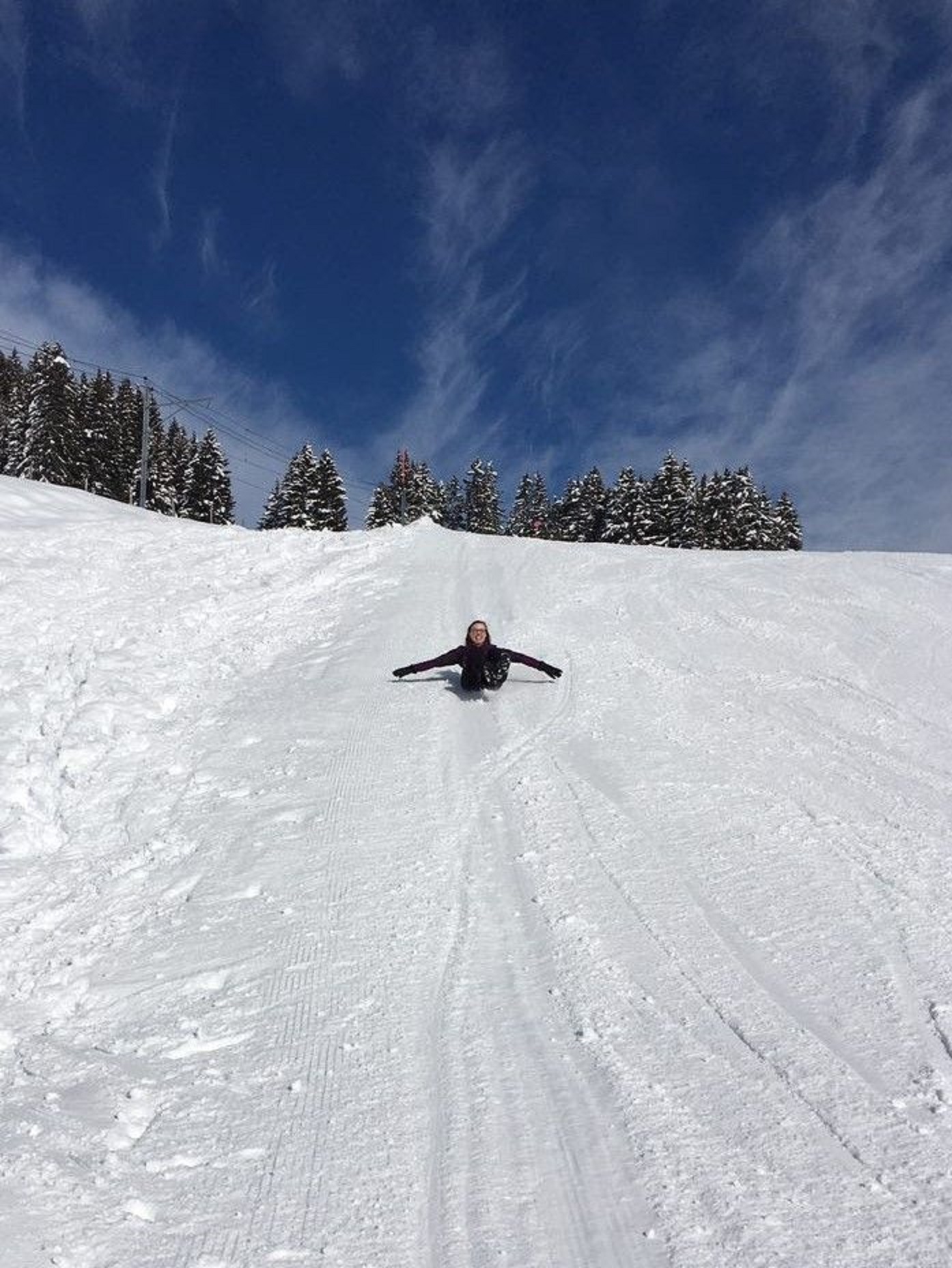Stela Rubínová
Stela Rubínová
|
Stela Rubínová comes from Prague and currently works in Switzerland, Geneva, at the World Trade Organization. She graduated from the IES in 2010 with Bachelor's degree and won an award of Josef Vavroušek for an outstanding Bachelor's thesis with an environmental theme. Stela also passed a study stay at the Katholieke Universiteit Leuven in Belgium. She then continued with her studies in Switzerland. She did her Master’s at the Graduate Institute of International and Development Studies (IHEID) in Geneva, where she focused on the field of International Economics. In the years 2010 - 2013, she was even awarded a full scholarship. She completed her studies successfully in 2017 with a PhD degree.
|
Which subjects at the IES helped you the most with your further studies in Geneva? Is there anything you would recommend to those who are planning to study full Master abroad?
The Master's degree at the Graduate Institute in Geneva is a bit particular in that it is relatively policy-oriented and recruits people from various backgrounds, often without a specialized economics undergraduate degree. Having a solid methodological background in mathematics and statistics certainly gave me confidence and helped me pass through econometrics and theory courses with less stress compared to some of my classmates. On the other hand, I had a lot of catching up on argumentation and essay skills.
Economic courses at the Master's level are relatively specialized and mostly based on current, rather technical, academic literature. I appreciated the context and the broader view of the discipline that I had taken from the Theory of Rules and the History of Economic Thought courses.
In my experience, the Bachelor's at IES was competitive with other programmes in Europe. Hence anyone interested in pursuing their Master's abroad, at least at a European university, just needs to decide where they want to go and apply. Of course I cannot but recommend doing an exchange semester already during their Bachelor's. It helps both with deciding on the subsequent programme and with learning how to navigate life in a foreign country.
You studied both your PhD and your Master’s in Geneva. You focused on International Trade and International Economics, why did you choose this specialization? Have you always planned the career in the world’s institution like WTO, or was it just coincidence?
The International Trade course at IES was my favorite, but when applying for Master's I did not have a clear specialization in mind. The Graduate Institute in Geneva, which focuses on international economics, was just one of the places where I applied. It was also the only place where I received a scholarship, and that is how I chose.
At the beginning I was rather attracted by the macro side, especially since it was 2010 and the financial crisis economics was a hot topic. During my coursework I nevertheless became more interested in industrial organization and international trade which were still highly policy-relevant but more methodologically appealing. I wrote my Master's thesis under the supervision of Richard Baldwin who drew me into the International Trade specialization.
The PhD in Geneva was then an obvious move as I also started eyeing a career in international organizations. Since most PhD graduates from the Institute end up working in an international organization, there is a wide alumni network which often brings opportunities for short-term consultancies. This helps to establish connections and gauge the different workplaces. I did an internship with my current Division in the first year and kept in touch throughout my PhD. Even though the fact that there was an open position close to the time when I was finishing my PhD was a lucky coincidence, my previous engagement with the WTO certainly helped getting through the first rounds of the recruitment process.
You are living for more than 7 years in Switzerland, how did you get used to the mentality of Swiss? Are there any specifics, which seem to be really strange for you?
I live in Switzerland, but in Geneva – the least Swiss city in the country. In fact, most of my friends and colleagues are foreigners. This is not surprising since Geneva is sort of a global village - the city itself has only around 200 000 inhabitants and almost fifty per cent of them are foreigners. So while I find it interesting to observe how numerous referenda play out and enjoy trains never being a minute late, Swiss is just one of the many different cultures to which I am getting used to.
You are working for more than 2 years in the WTO. Which is the field of your research? Could you describe a bit what do you exactly do?
I work in the economic research group of the WTO. The spectrum of our activities is quite broad – it includes research, conferences, teaching courses to country delegates, policy publications, inputs for speeches or economic analysis for the dispute settlement cases. I have dipped my toes in all of them in the past two years.
I continue in the field of research from my PhD which focuses on global value chains and production networks in general. Still, I often branch out according to the topics of our policy publications. Every year our division publishes the World Trade Report, which delves into one trade-related topic. I also co-authored a joint ILO-WTO publication that focused on the nexus between skills, trade and labor markets and now we are working on a joint publication with the World Bank that deals with trade and the gender gap.
Your hobbies? How do you spend your free time?
The best thing about Geneva is its lake and the surrounding mountains. Hence, in the summer I go swimming in the lake and mountain hiking, in the winter I go skiing. I also pass a fair share of my time travelling, mostly around Europe.








